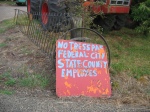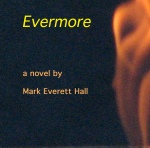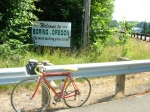Trade journalism was once a thriving business that kept writers off the streets and editors fiddling with their fat expense accounts. There were print publications about everything. Cars. Chemicals. Coal. Computers. Construction. And that’s just a subset of C subjects.
Every year large and small trade publishers would launch new print magazines in emerging markets and well-established ones. Almost as often, publishers would shut down a title or two. The trade journalism market was a perfect example of the economic theory of creative destruction.
Now it’s just destruction. There are websites devoted to the death of print magazines, most of them trade journals, complete with morbid slideshows. With the elimination of those pubs, jobs disappear. As such, enjoying a lucrative writing or editing career in trade journalism, such as I did, has become less likely for coming generations.
More people need to “touch” the content in print than to produce something for online. For example, while blogging at Computerworld I was able to post my pieces directly to the Web. No news editor. No copyeditor. No production editor. No designer. No pressman. Occasionally, after the fact, the copy desk would attend to my editorial shortcomings and fix things, but it was rare. With the layoffs and the pressure to edit massive volumes of content online and for print, the desk was lucky to have time to breathe let alone bother with bloggers.
I’m not going to bemoan the indisputable fact that online content tends to suffer more misspellings, missing words, poor grammar, and other errors than do print publications. Although there, too, as layoffs mount in print publishing quality is deteriorating.
My beef here is with diminished career opportunities for people entering the workforce. When I hit the work-a-day world after college I was formally trained to do precious little of value in the marketplace. According to my first professional manager who hired me, my masters degree only showed her that I could be trained, not that I actually knew anything that would benefit the company. As ego-crushing as her observation was, she was right.
However, my education did prepare me to write. Once I learned a bit about a topic, I could produce some (presumably) coherent words about it. With luck, I stumbled upon subject areas in the very early 1980s that were taking off (LANs and Unix), but had relatively few people able to understand enough to write about them. As a result, I got plenty of excellent jobs with good trade publications for nearly three decades. Almost all of those magazines are gone now, replaced by websites, where much of the content is produced for free by readers.
(Type “reader-generated content” into Google and you’ll get 110,000,000 results. That’s a lot, even by Google’s standards. Editors and publishers love it because it’s free and it is often controversial, helping to lure and keep readers like car wrecks on highways attract rubberneckers. And, as we all know, most of it is sheer crap.)
With the ongoing and increasing demise of trade journals, a deep and diverse career pool for smart, educated people beginning their worklives is drying up. While I do not expect to see these young folks starting Tottenham-class riots in their frustration, I do expect it will mean more of them living at home for much longer than they already are, or, if mom and dad are lucky, the kids will be joining an unemployment queue while living somewhere else.
Copyright 2011 Mark Everett Hall





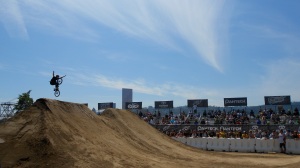

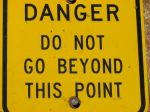

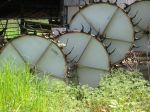 I suppose it could have been put up there as an advertisement for a bike repair shop, but there does not appear to be a business in the building or anywhere else for miles, nor has there been in the eleven years I’ve been riding past the place. So, I wonder, why did the owner put it there?
I suppose it could have been put up there as an advertisement for a bike repair shop, but there does not appear to be a business in the building or anywhere else for miles, nor has there been in the eleven years I’ve been riding past the place. So, I wonder, why did the owner put it there?